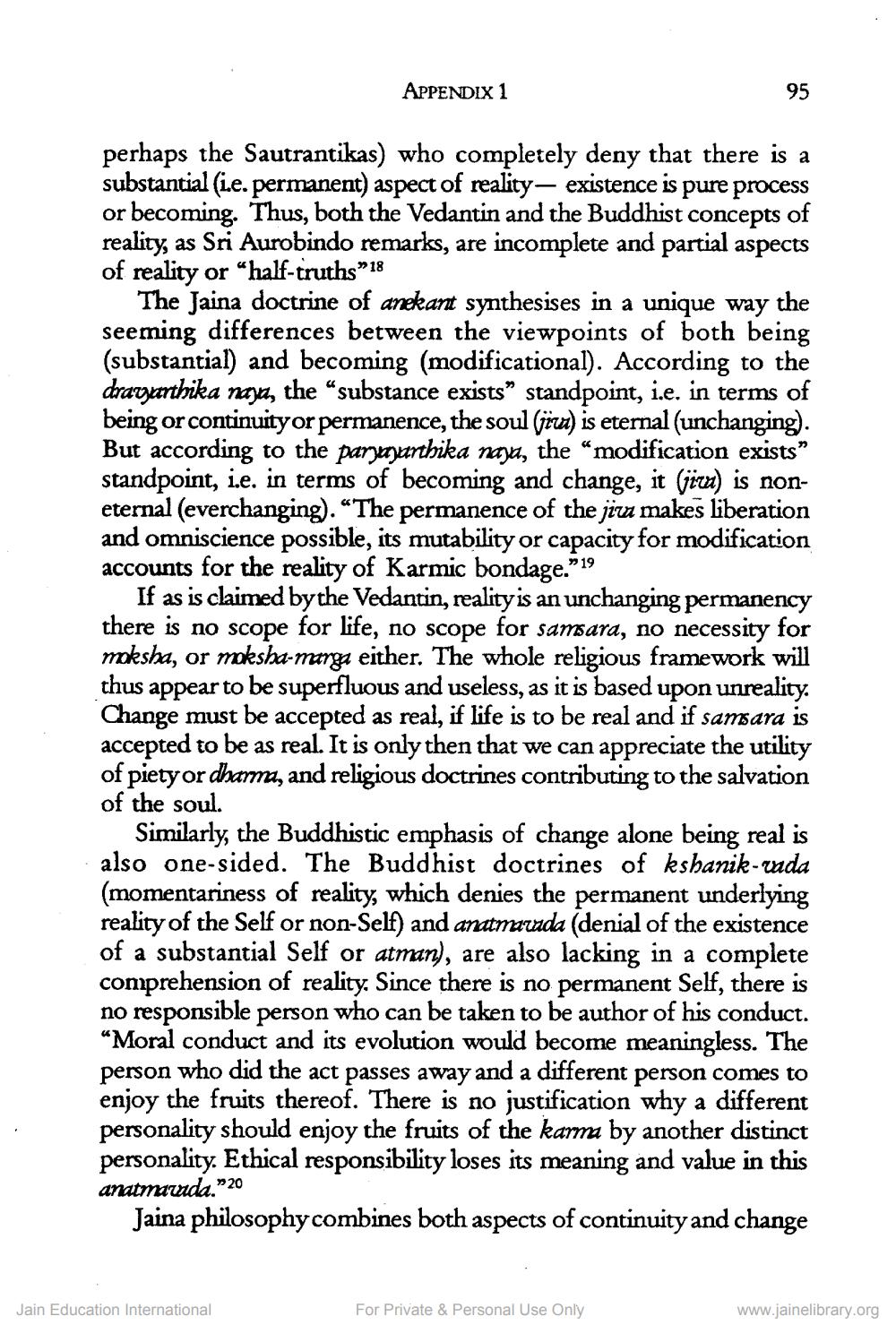________________
APPENDIX 1
95
perhaps the Sautrantikas) who completely deny that there is a substantial (.e. permanent) aspect of reality, existence is pure process or becoming. Thus, both the Vedantin and the Buddhist concepts of reality, as Sri Aurobindo remarks, are incomplete and partial aspects of reality or "half-truths”18
The Jaina doctrine of anekant synthesises in a unique way the seeming differences between the viewpoints of both being (substantial) and becoming (modificational). According to the dragarthika naya, the “substance exists" standpoint, i.e. in terms of being or continuity or permanence, the soul (jira) is eternal (unchanging). But according to the paraarthika naya, the “modification exists” standpoint, i.e. in terms of becoming and change, it (jira) is noneternal (everchanging). “The permanence of the jira makes liberation and omniscience possible, its mutability or capacity for modification accounts for the reality of Karmic bondage."19
If as is claimed by the Vedantin, reality is an unchanging permanency there is no scope for life, no scope for samsara, no necessity for moksha, or moksha-manga either. The whole religious framework will thus appear to be superfluous and useless, as it is based upon unreality. Change must be accepted as real, if life is to be real and if samsara is accepted to be as real. It is only then that we can appreciate the utility of pietyor dharma, and religious doctrines contributing to the salvation of the soul.
Similarly, the Buddhistic emphasis of change alone being real is also one-sided. The Buddhist doctrines of kshanik-rada (momentariness of reality, which denies the permanent underlying reality of the Self or non-Self) and anatmarada (denial of the existence of a substantial Self or atman), are also lacking in a complete comprehension of reality. Since there is no permanent Self, there is no responsible person who can be taken to be author of his conduct. “Moral conduct and its evolution would become meaningless. The person who did the act passes away and a different person comes to enjoy the fruits thereof. There is no justification why a different personality should enjoy the fruits of the karma by another distinct personality. Ethical responsibility loses its meaning and value in this anatmarada.”20
Jaina philosophy combines both aspects of continuity and change
Jain Education International
For Private & Personal Use Only
www.jainelibrary.org




